D.C. Chinatown: Where It All Began
The inaugural post for this Chinatown project will focus on none other than DC Chinatown, located in our great nation's capital, where the Declaration of Independence was signed by our founding fathers and the United States Constitution was drafted. Alright, alright, that all happened Philadelphia. Still, upon learning that DC Chinatown was only a 7-minute walk from Georgetown Law (where I'd be attending a summer program), I decided it was time to finally launch this project that I've held in my mind (and heart) for many years. For nine days, I stayed at the Fairfield Marriott on H Street and immersed myself in the two-block radius that has been designated DC Chinatown. Nine full days in the smallest of Chinatowns gave me the unique opportunity to check out and eat at every Chinese establishment here...some twice.
First Impressions. Prior to my trip, I read many disgruntled online reviews--some by tourists who told how DC Chinatown paled in comparison to its counterparts in NY and Chicago. Others claimed that this once immigrant-populated community has been passed down to the second-and-third-generation children of shop owners who no longer speak Chinese. Upon arrival, the absence of elderly Chinese people, the missing man with the 二胡 (erhu) playing at the street corner, and just the ability to walk freely without the typical pushing and shoving one would often be subjected to on Stockton Street in SF Chinatown all served to seemingly confirm one thing: DC Chinatown has been relegated to no more than a tourist attraction devoid of real Chinese culture. But over the course of my stay, I learned that this is far from the truth.
In Chinatown Market, you'll find tofu, dried beancurd, dried rice noodles, and authentic Chinese snacks.
A Toisanese and Fukienese Community. My first stop was this Chinatown Market for cold bottled water to battle the DC heat. As soon as I stepped foot inside, I heard yelling in a familiar language--the Chinese dialect of Toisan to be exact. It turned out that this market was run by a Toisan family and, though front shelves were stocked with chips, gum and the like, a stroll to the back revealed a supply of dried rice noodles, Chinese condiments, jasmine rice, and even limited ingredients for 老火湯 (lo foh tong)--slow-cooked soup that is central to Cantonese cuisine. That was the first of many signs that there was an actual Chinese community that calls this place home.
This longtime resident of the Fujian (Fukien) Ass'n donned traditional silk jacket and pants. Though Fukienese, he spoke in Mandarin so I could understand him.
Another day, as I passed by the Fujian Resident Association, I encountered a man (in the photo to the left) reading the paper on the steps. I approached and asked if he lived there. 怎麼樣 (zěn me yàng)? he responded, the equivalent of "What's up?" I told him about my project, and he eagerly gave a brief history of his home. "1991," he proclaimed in English was when he immigrated to the States. The community is mixed, he said, and the new metro line that runs directly to Chinatown has brought more foot traffic from the NE, an area known for its crime rate. This changed the dynamics in Chinatown, and those with financial means moved to the suburbs of Virginia. Though China and America has its differences, he said, he is content (满足 "mănzú") with his life here now. And being mănzú is the key to happiness, is it not? he asked with a knowing smile. And that is often the wisdom that older Chinese try to impart to the younger generation.
Yet another day, I had a lengthy conversation with a waitress from New Big Wong. She told me her family immigrated thirty years ago from Toisan directly to DC. Her three kids were raised in DC Chinatown but are now in their 30's and live in Virginia. She has no reason to leave and has many local Chinese friends that she has met through the Chinese church on the corner of 5th and I. The community here is mostly Toisan and Fukien, she said, and that's where they gather.
My subsequent conversations with shop owners, restaurant managers, waitresses and residents all told the same story. DC Chinatown is a fusion of two Chinese cultures--that of the Toisan village from the province of Canton and Fukien, a smaller province in China bordering Canton and directly across from Taiwan populated by individuals who speak Hakka, Chiu Chow, Taiwanese and more.
Food. Reviews on Chinese food in America are so subjective, because it often depends on whether you are Chinese or not Chinese (and therefore whether you are privy to how dishes ought to taste.) But it also depends on whether you are Chinese because of what the restaurants will offer you. This isn't because Chinese restaurant owners are being exclusive but rather that they are trying to cater to taste. In almost all of the restaurants on this block, I was told by the waitresses and owners to order off the menu.
With limited selection, I found only two restaurants reliable for Cantonese cuisine: Full Kee and New Big Wong. Both are run by Toisanese families. Though both offer authentic dishes and have been around for decades, Full Kee takes the prize for variety and preparation. Their 乾炒牛河 (dry-fried beef ho fun--a signature Cantonese dish) is not at all greasy, and their on-choy was expertly stir-fried with the right amount of fermented bean curd. Both dishes are a must-try.
After a pub crawl in downtown, however, the most comforting food would probably be their wonton noodle soup. The egg noodles were not too soft or chewy and were appropriately daan-nga, a Cantonese expression reserved for perfectly-prepared egg noodles, literally translating to "bouncing off the teeth." Their noodle source? NY Chinatown.
And though other restaurants have been deliberately left unmentioned because their dishes were too Americanized to be considered Chinese or simply not good, Taishan Village does deserve an honorable mention for being able to pull together a signature Toisan dish that I also ordered off the menu - salted fish, chicken and tofu clay pot. They had all the ingredients on-hand, and it tasted fresh and authentic.
Moving away from Cantonese cuisine, there is one restaurant that pretty much rocked my visit. I initially walked past dismissively after I saw a photo depicting roast duck in some sort of udon or thicker noodle. Yet another imposter in Chinatown, I scoffed, preying on the ignorance of foreigners unfamiliar with Chinese cuisine. When I reluctantly walked in for a meal for the sake of this blog on a later date, I was in for a huge surprise. Res ipsa loquitor. Let the photos speak for themselves.
The noodles are 拉麵 (la mien), which translates into hand-pulled noodles. Commonly found in parts of Northern China, like Shanghai or Shandong, the last time I had this was during a visit to Xi'an. Roast duck, however, is Cantonese from Southern China and is the only type of duck served in a noodle soup (Peking duck from Beijing in Northern China is prepared differently and only served in a bun or tortilla). The fresh ginger scallion, though, is typical of Hainan cuisine, also a city in the province of Canton but inhabited by many Fukienese. Completely confused, I asked the manager where the chef was from. "Everywhere," he responded dryly, typical of Cantonese humor. He then paused and gave a fuller answer: Hakka, Shanghai, Canton, Fukien, to name a few. Of course. And that is why this one decadent dish epitomizes DC Chinatown. $6.95 for a bowl.
Chinatown Express' sifu makes fresh la mein daily. Sifu, which translates to master, is a respectful way to address someone who is a master in his trade.
A Hidden Gem. In California, there's been a relatively recent craze over a Taiwanese bakery called 85C. Hour-long lines develop outside each location even for a single bao (Chinese pastry). Other Chinese bakeries exist, of course, but none are as delicious as 85C. Joy Luck House is not an exception...but it comes much closer than the others. Before my early morning classes, I stopped by this cafe everyday because I craved congee (jook) for breakfast. Every morning, I was turned away because the sifu had overslept. The only person at the location was the baker--who arrived every morning at 5 a.m. to start baking on-site. His baos became my only breakfast option, and I soon learned that, amazingly, this cafe that is patronized by nobody else but yours truly houses an undiscovered pastry chef who creates a variety of delicious, light, fluffy, not-too-sweet pastries every morning. Try pairing Dunkin Donuts (just around the corner) with his Hong Kong 奶油包 (nai yau bao - cococut cream custard bun.) And then please come back and tell me what you think.
Night life. DC Chinatown is most charming at night, with illuminated signs and a beautiful archway. The signs for various establishments, which have been translated into Chinese, are equally entertaining. Fuddruckers reads, "The World's Best Restaurant," while Hooters is "The Owl Restaurant." And Walgreens? "The Green Pharmacy."
But what about night life for the Chinese locals? Do they hang out at the same establishments as the general public, or are there more hush-hush places, where alcohol is served without carding (not that it's an issue for me anymore) and karaoke options include more of Jay Chou than Katy Perry? On my first night here, I was invited to one of these locations by pure chance. Up a single flight of stairs, the bar owners spoke fluent Cantonese and were either from Hong Kong or Macau, judging by their accents. There was no formal entrance to this establishment and no signs indicating its existence. But inside, elaborate fruit platters were being consumed, and loud conversations were had with G.E.M. (Get Everybody Moving, HK singer 鄧紫棋) playing in the background. It felt like home.
In sum. The motivation behind this Chinatown project is my ongoing fascination with not just Chinese diaspora but how we all managed to gather in these small pockets, remaining relatively insular and keeping our language and culture intact. Even though I was born in the United States, I was raised in a very Chinese community. With this background, being able to stay here in the heart of DC Chinatown for 9 days gave me firsthand experience of what it is like to find a home away from home. Though I was surrounded by classmates and colleagues on a daily basis, I felt comfortable and at home because, at night, I was able to return to a neighborhood with people from my family's village, who spoke in my native tongue, who cooked dishes that I considered comfort food, who readily invited me to their community church and who showed extra consideration because I was one of their own. It made a difference.








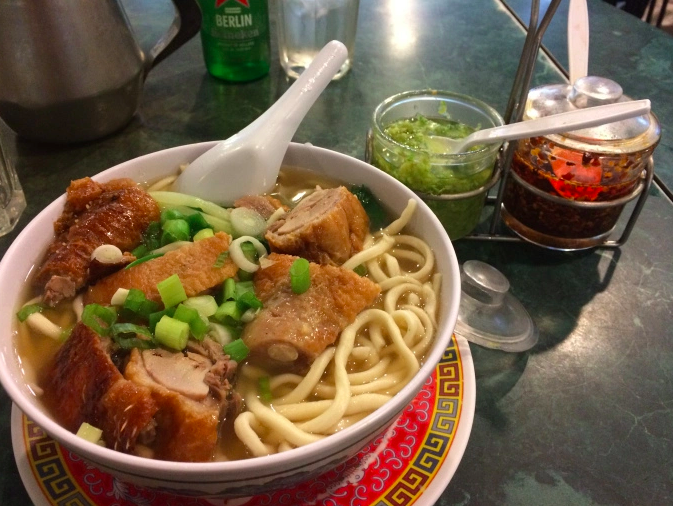
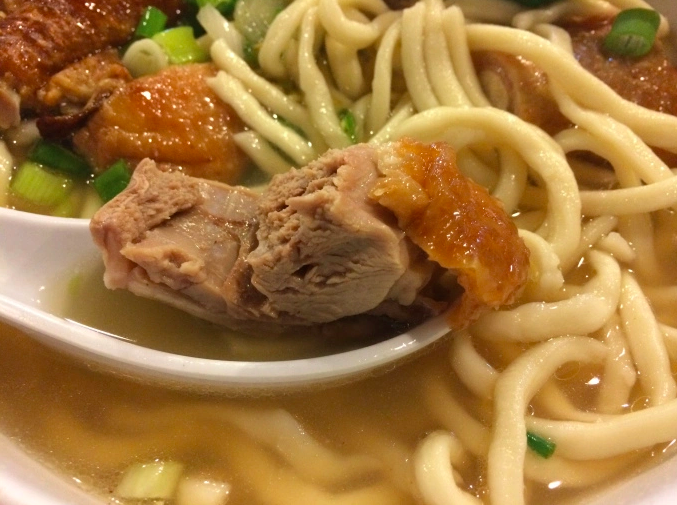
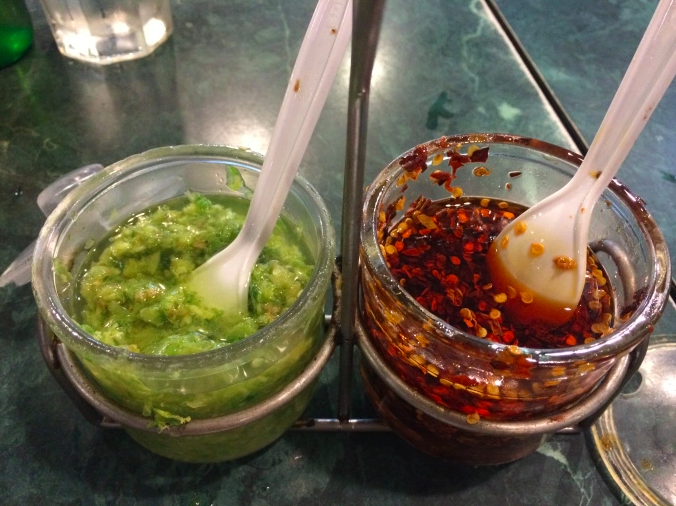
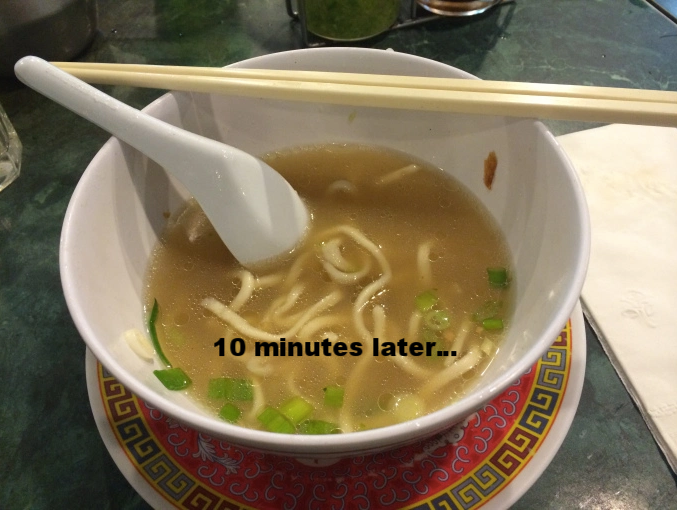
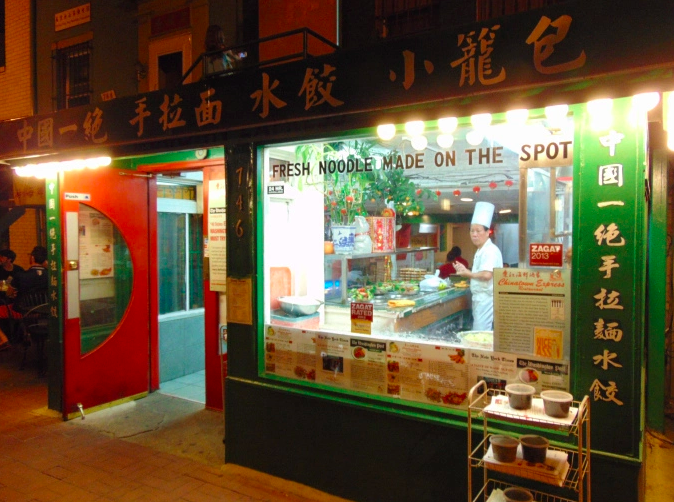

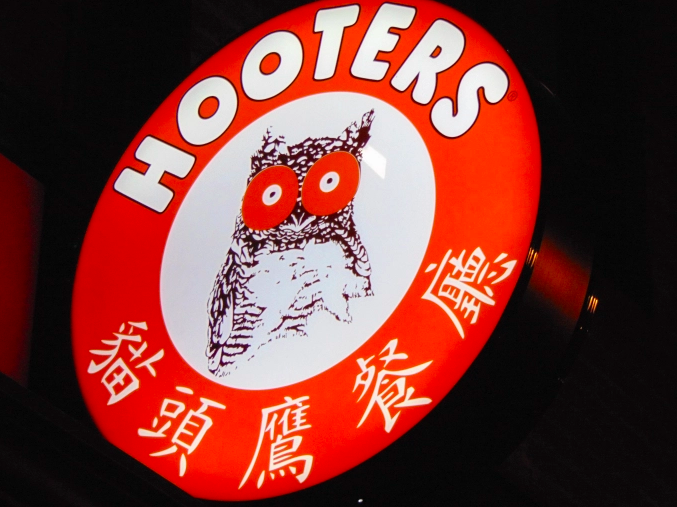
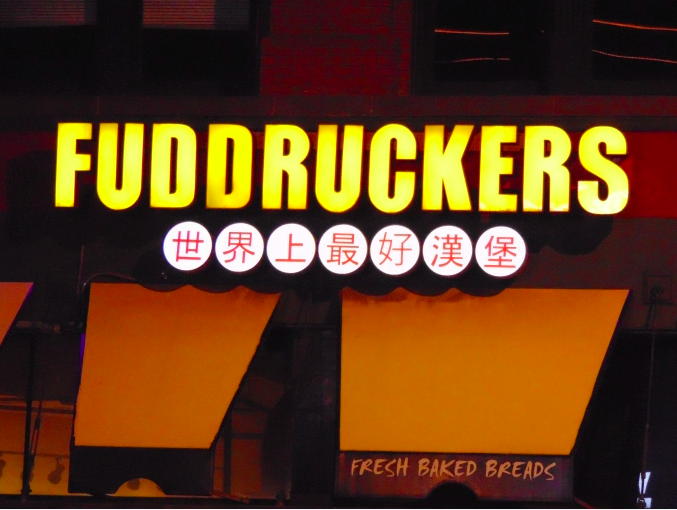
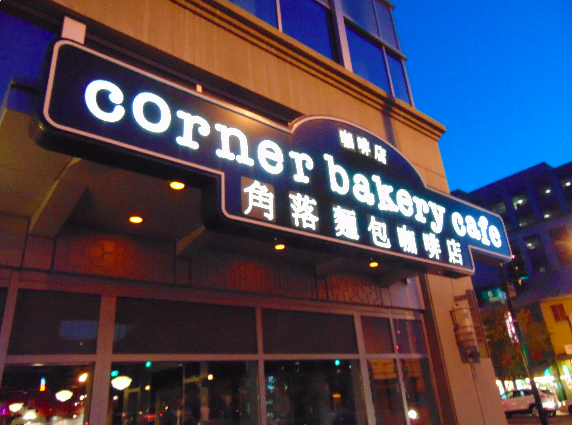

![To Live And Die In L.A. [Chinatown]](https://images.squarespace-cdn.com/content/v1/5a70c23eedaed89d9f30271c/1518285475841-G6IIMG25Q2B76BQEMT98/2014-07-16-15-19-311.jpg)